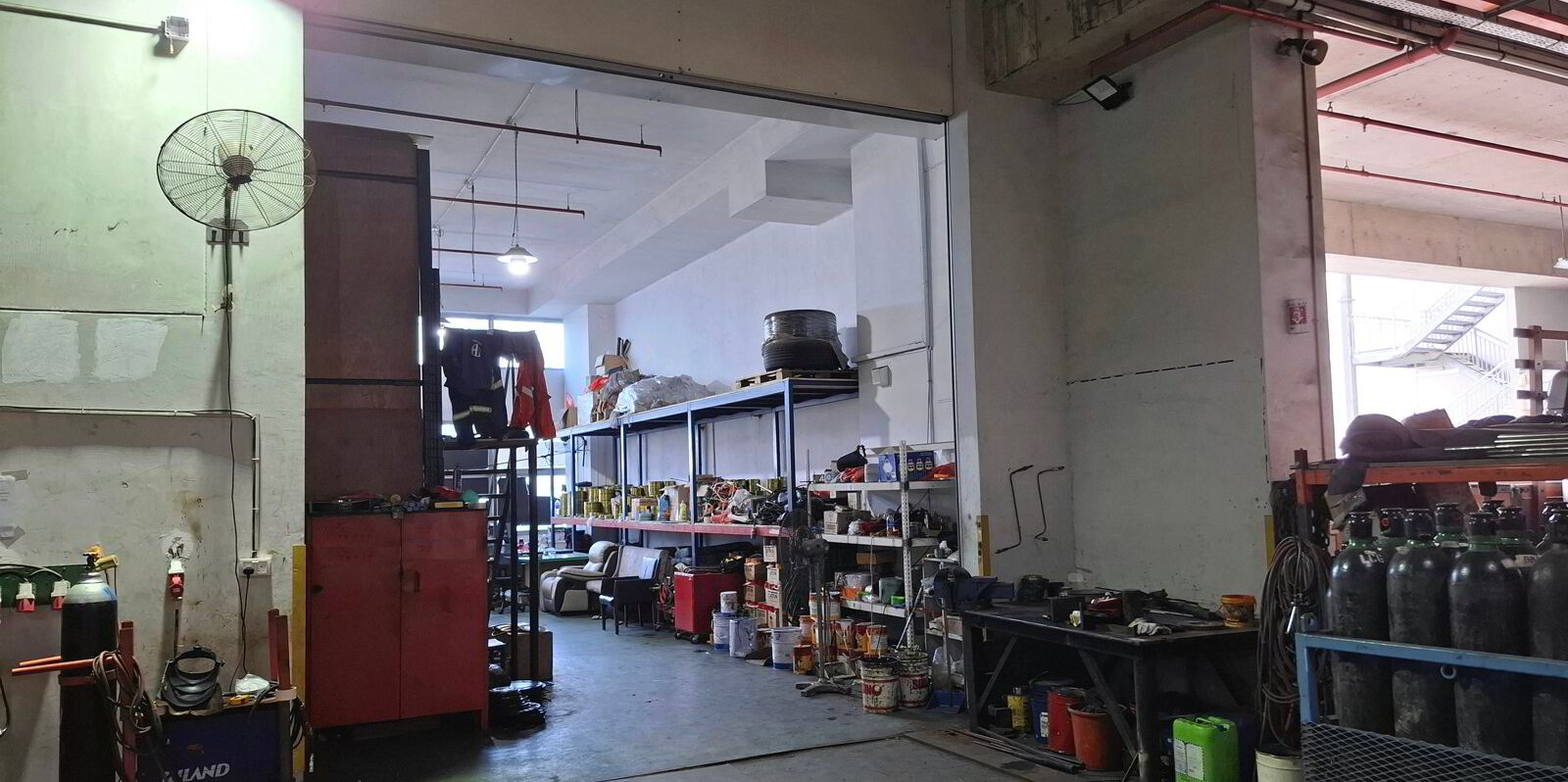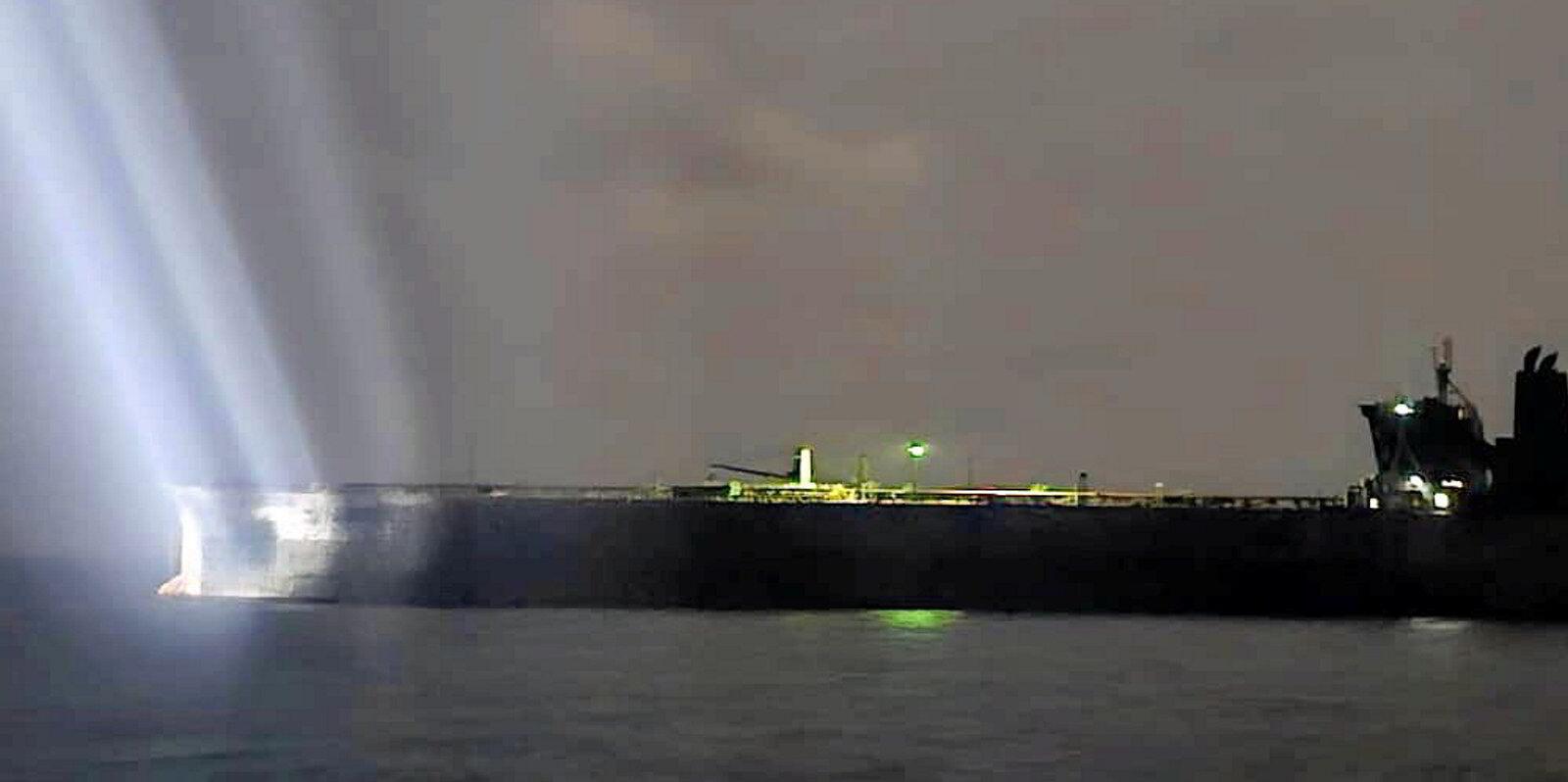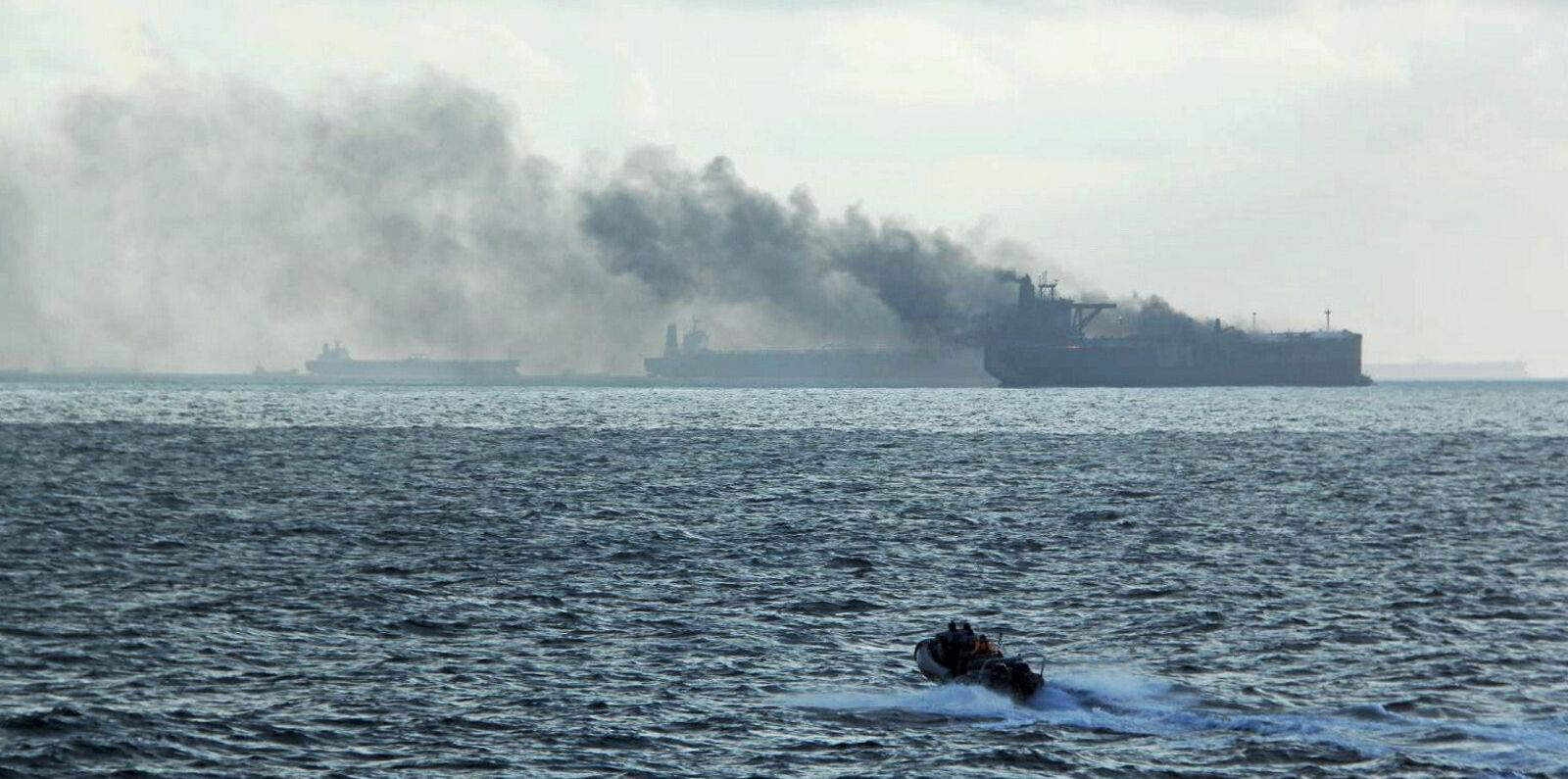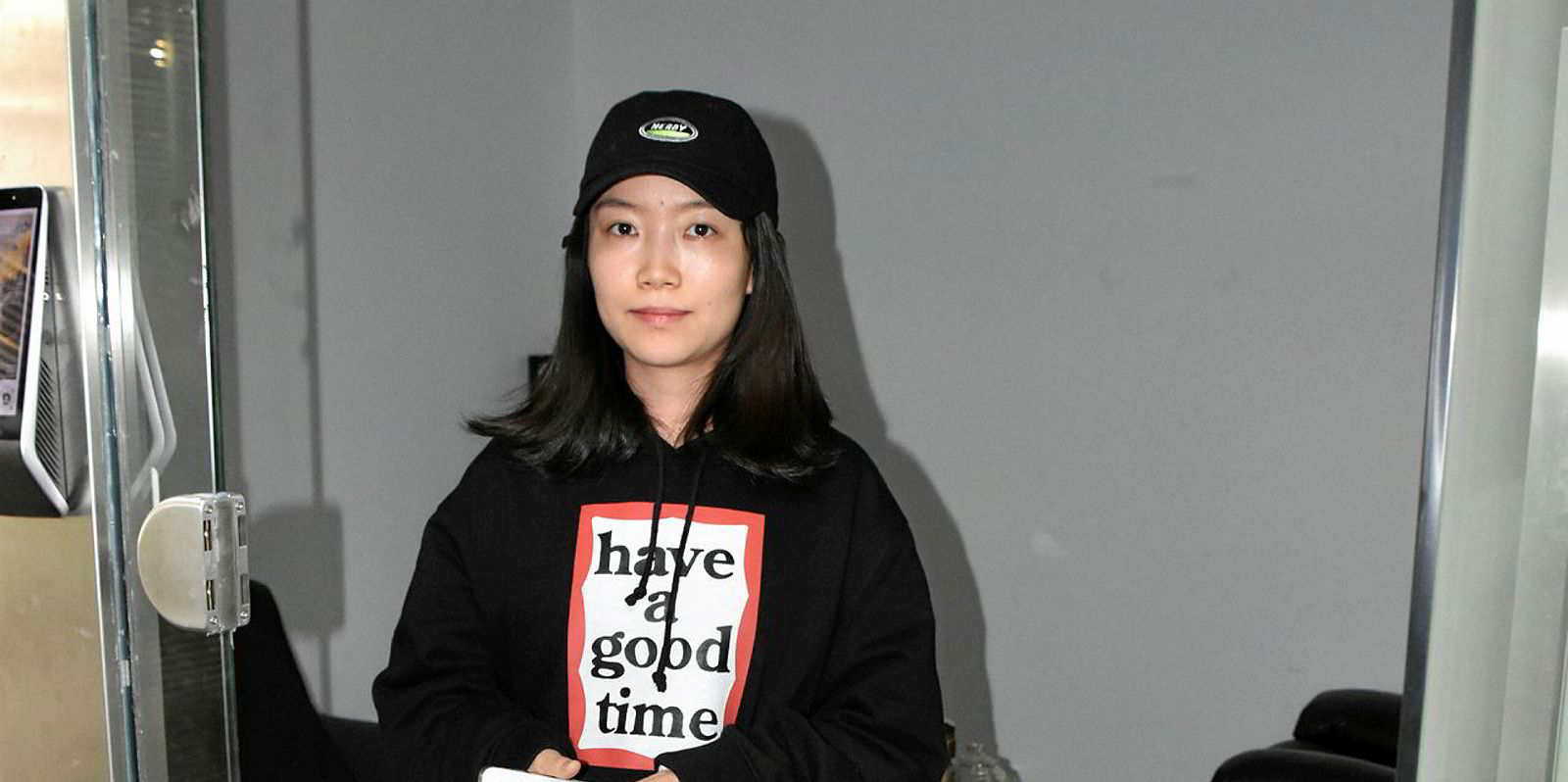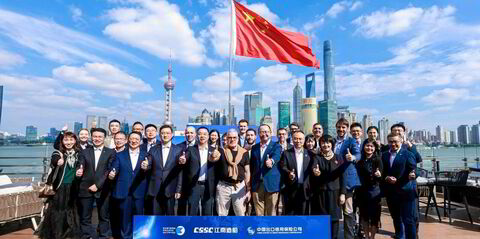The West Connect Building in an industrial district of Singapore houses a new player in the saga surrounding the alleged dark fleet VLCC that tried to do a runner after colliding with a Hafnia product tanker off Malaysia on 19 July.
In a move that has all the optics of an attempt to distance Shanghai Prosperity Ship Management from the 300,000-dwt crude tanker Ceres I (built 2001), Blueshark Shipping, a previously unheard of Singapore-registered ship manager, is purported to have been its manager at the time of the collision.
S&P Global’s International Ships Register — the maritime database regarded as the gold standard of ship registers and whose data is accepted by courts worldwide — listed the Ceres I at the time of its collision as being under the commercial and technical management of Shanghai Prosperity.
Other databases indicated the same.
Last week, however, after Malaysian authorities intercepted the VLCC fleeing the scene of its collision with the 74,200-dwt product tanker Hafnia Nile (built 2017), S&P Global retroactively updated the ship’s listing to show Blueshark as its manager.
S&P Global confirmed it had updated the Ceres I’s listing on 24 July, based on information it received confirming Blueshark’s role that dates back to at least last September.
Data from the Accounting and Corporate Regulatory Authority of Singapore (ACRA) obtained by TradeWinds shows that Blueshark was incorporated as a business in January 2021. Its sole shareholder is Liu Yudong, a Chinese national based in the Chinese city of Dalian.
Acting on behalf of the company in Singapore as director and secretary is Xu Ruduo, another Chinese national who holds permanent residency in the city-state.
The Ceres I is the first and only ship under Blueshark management, according to S&P Global data.
Unit #04-35 in the West Connect Building, Blueshark’s address on record, is also the registered address of two other ship managers, according to ACRA records.
Both have managed vessels alleged to have dark fleet ties.
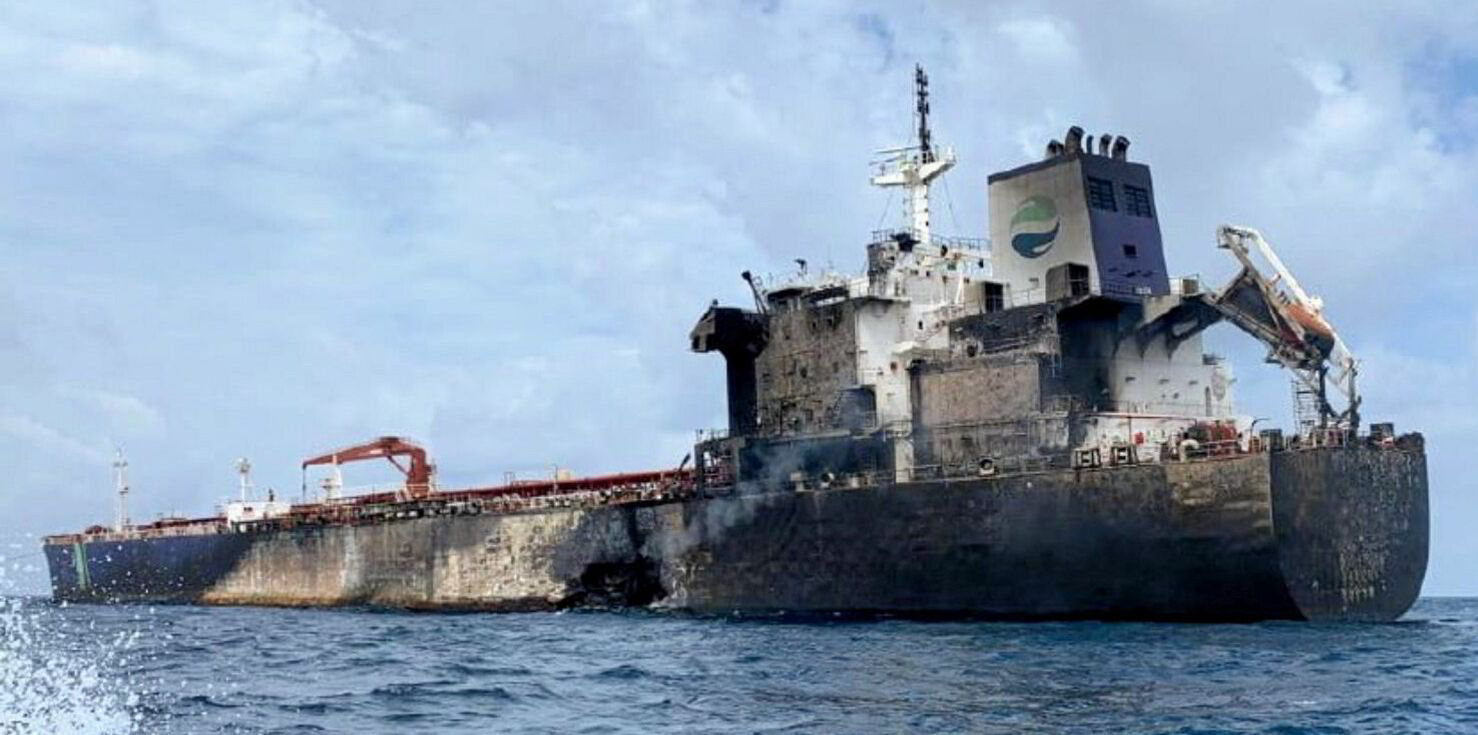
Moonlight Shipping was incorporated in May 2020 and its sole shareholder is Wang Xiaoping, a Chinese national with an address in Dalian.
Moonlight managed the 306,000-dwt crude carrier Freya (built 2000) until its role in the sanctioned Iranian crude trade was exposed after Indonesian authorities detained it on charges of engaging in an illegal oil transfer off Kalimantan province. The other tanker involved was National Iranian Tanker Co’s 317,400-dwt Horse (built 2008).
The Freya, upon release, moved on to new managers as the renamed Ishtar.
The two other tankers under Moonlight’s control subsequently moved on to new managers. One of these, the 106,000-dwt Themis, is managed by Shanghai Prosperity.
Moonlight is still listed by ACRA as an active company despite not having had any ships under its management since February 2023.
A third company with the same address as Blueshark is Sealion Ship Management, whose sole shareholder is Yu Lei, another Chinese national with an address in Dalian.
Sealion is the manager on record for the Panamanian-flagged, 105,000-dwt tanker Skadi (built 2001).
This ship, owned by Marshall Islands-registered Skadi Ltd since June 2020, has steered clear of accusations of transporting sanctioned Iranian crude oil, but data provider Kpler claims it has been involved in ship-to-ship transshipments of Russian crude oil.
Connecting these ship managers sharing Unit #04-35 in the West Connect Building is Xu Ruduo, who acts as director and secretary of all three.
Repair workshop
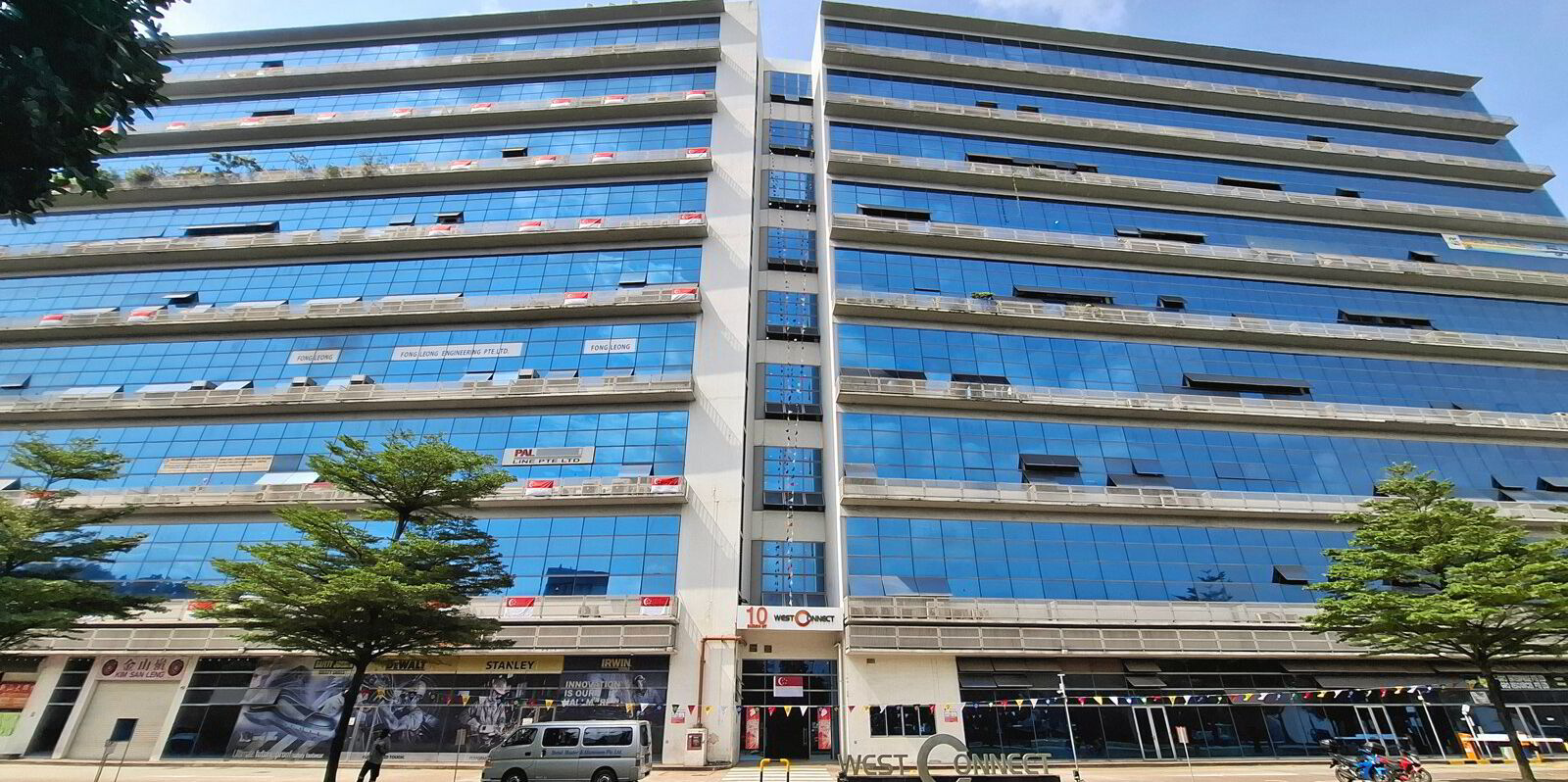
Xu, who appears to have no online presence, could not be reached for comment on his role at the companies.
In all likelihood, his involvement extends only as far as putting his signature on their incorporation documents, something ACRA data indicates he has done for 2,719 mostly brass-plate companies spread across multiple business sectors.
He is currently a director of no fewer than 1,834 companies.
Unable to reach Blueshark by phone, TradeWinds paid a visit to its office in the West Connect Building.
Behind the building’s office block-style glass facade lies a decidedly industrial facility of drive-up units housing small factories, workshops, storage facilities and marine supply companies.
Unit #04-35, the address of Blueshark, Moonlight and Sealion, turned out to be a workshop for a company that repairs marine equipment.
There was no evidence that three ship managers were operating out of the workshop and employees laughed at any suggestion that they were.
This was the same scenario as in 2019, when TradeWinds tried to track down Shanghai Prosperity and several other ship managers who popped up in and around Shanghai to take over the fleet of Kunlun Shipping.
Kunlun was a Chinese company that rapidly amassed a sizeable fleet of crude tankers before being sanctioned by the US Treasury Department for transporting Iranian crude oil.
Shanghai Prosperity’s office space on record was found to belong to a youthful group of online resellers of cameras and mobile phones.
Kunlun was widely reported to be the buyer of the Ceres I when it was sold by Sinokor as the Pacific Glory in early 2019.
But after the shipowner had been sanctioned several months later, the ship moved across to single-ship special purpose vehicle Ceres Shipping and was placed under Shanghai Prosperity management.
Tanker and ship management sources in Singapore believe that companies such as Shanghai Prosperity, Blueshark, Moonlight and Sealion exist only on paper, with the ships supposedly under their control being managed out of Dalian.
A paper trail providing a clearer picture of how the Ceres I has been operated and managed over the past five years is most likely to be found on board the ship itself.
This probably explains why it tried to sneak out of Malaysian territorial waters so abruptly after its collision with the Hafnia Nile.
